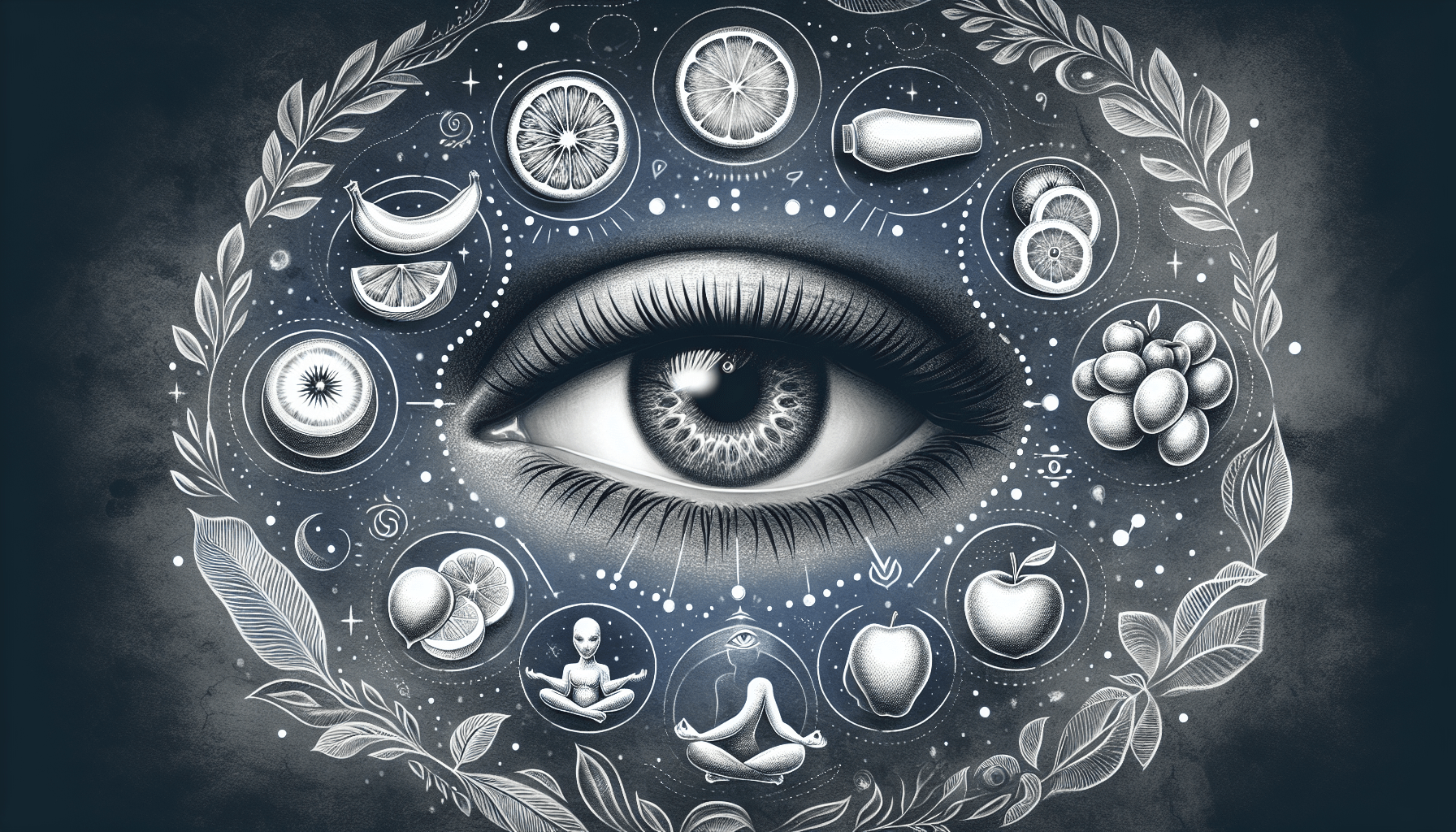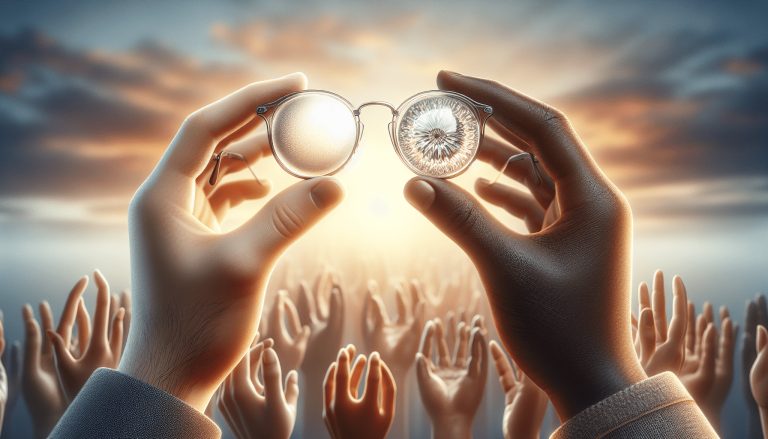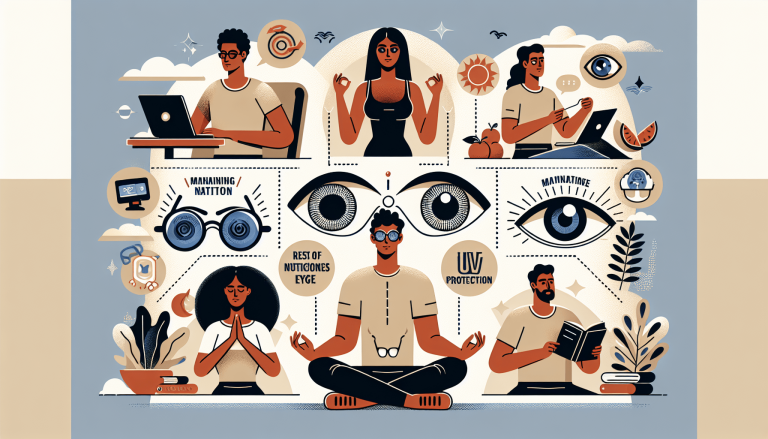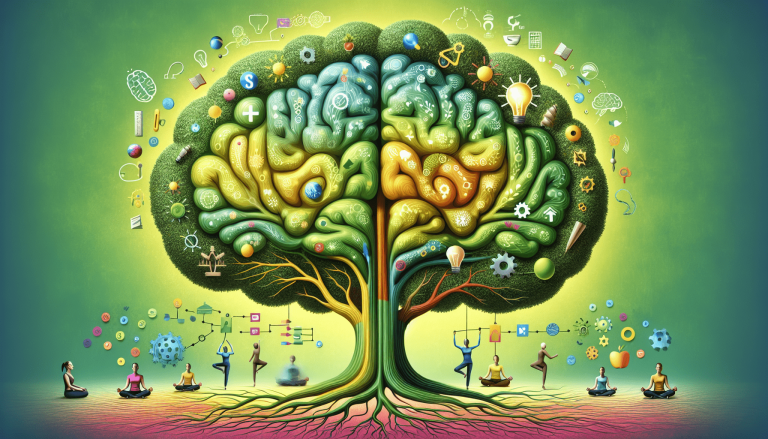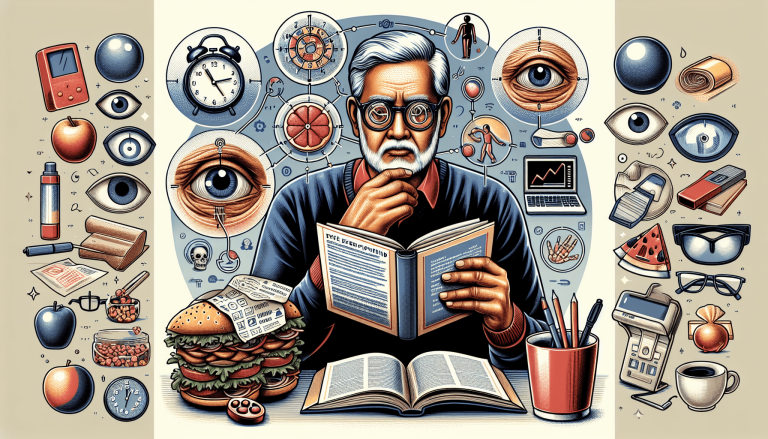Can Eyesight Be Improved?
Imagine a world where you no longer need to rely on glasses or contact lenses to see clearly. A world where you wake up each morning with perfectly clear vision and the freedom to enjoy your day without any visual hindrances. Sounds too good to be true, right? Well, what if I told you that it might actually be possible to improve your eyesight naturally? In this article, we will explore whether it is truly within our reach to enhance our eyesight and leave behind the constraints of corrective lenses. So, put on your reading glasses (if you still need them) and let’s dive into the fascinating topic of improving eyesight.
Factors Affecting Eyesight
Eyesight can be influenced by various factors, including age, genetics, and lifestyle habits. As you age, your eyes undergo natural changes that can affect your vision. These changes may include a decrease in the ability to focus on close objects, difficulty seeing in low light, and a higher risk of developing eye conditions such as cataracts or age-related macular degeneration.
Genetics also play a significant role in eyesight. Certain eye conditions, such as myopia (nearsightedness) or astigmatism, can be hereditary. If your parents or close relatives have these conditions, you may have a higher likelihood of developing them as well.
Lifestyle habits can impact eyesight as well. Factors such as prolonged exposure to digital screens, not getting enough sleep, smoking, poor nutrition, and lack of eye protection can all contribute to visual problems. It is essential to be mindful of these lifestyle choices and make necessary adjustments to protect and preserve your eyesight.
Eye Exercises
Eye exercises can be an effective way to improve and maintain your eyesight. These exercises help to strengthen the eye muscles, enhance focusing ability, and reduce eye strain. Here are some simple eye exercises you can try:
Palming
Palming involves covering your closed eyes with your hands, creating a warm and dark environment. This exercise helps to relax and rejuvenate the eyes by reducing eye strain and improving blood circulation.
Blinking
Blinking exercises can combat dry eyes and maintain eye moisture. Simply blink your eyes rapidly for a few seconds to increase tear production and prevent dryness.
Near and Far Focus
This exercise requires you to focus on an object that is both close and far away to improve your visual flexibility. For example, hold your finger close to your face and then shift your focus to an object in the distance. Repeat this back and forth for a few minutes.
Eye Rolling
Eye rolling is a great exercise to relax the eye muscles and improve eye mobility. Slowly roll your eyes in a circular motion clockwise and then counterclockwise. Repeat this exercise a few times in each direction.
Zooming
Zooming exercises involve focusing on objects at different distances to train your eyes to change focus smoothly. Start by focusing on an object close to you and then gradually shift your focus to an object in the distance. Repeat several times to enhance your eye’s ability to adjust focus.
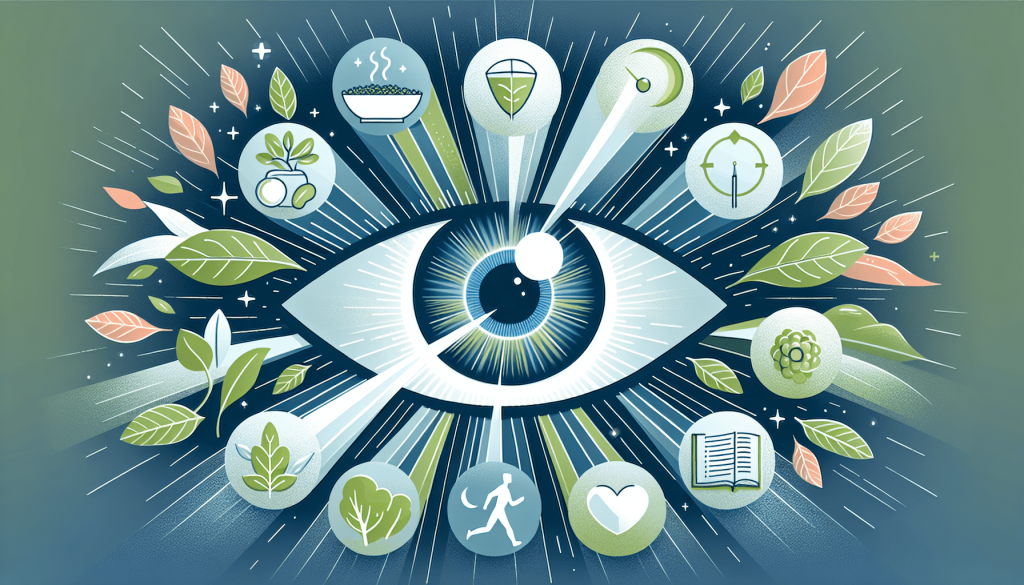
Proper Nutrition
Maintaining proper nutrition is paramount for good eyesight. Certain nutrients are essential for maintaining healthy eyes. Here are some important nutrients for eye health:
Vitamin A
Vitamin A plays a crucial role in maintaining good vision. It helps protect the surface of the eyes, promotes clear vision, and prevents night blindness. Foods rich in vitamin A include carrots, sweet potatoes, spinach, and eggs.
Omega-3 Fatty Acids
Omega-3 fatty acids are beneficial for overall eye health and may help prevent age-related macular degeneration. Sources of omega-3 fatty acids include fatty fish like salmon, sardines, and walnuts.
Antioxidants
Antioxidants like vitamin C and vitamin E help protect against damage caused by free radicals, which can harm the eyes. Foods rich in antioxidants include citrus fruits, berries, nuts, and green leafy vegetables.
Zinc
Zinc is a mineral that plays a vital role in maintaining healthy eyes. It helps convert vitamin A into a form that is necessary for good vision. Foods rich in zinc include oysters, beef, poultry, and fortified cereals.
Lutein and Zeaxanthin
Lutein and zeaxanthin are antioxidants that can help reduce the risk of developing age-related macular degeneration and cataracts. They are commonly found in dark green leafy vegetables such as kale, spinach, and broccoli.
Protective Eyewear
Protecting your eyes from harmful UV rays, blue light, and potential injuries is crucial for maintaining good eye health. Here are some types of protective eyewear:
Sunglasses
Wearing sunglasses with UV protection can shield your eyes from the harmful effects of the sun’s ultraviolet (UV) rays. Excessive UV exposure can lead to cataracts, macular degeneration, and other eye conditions.
Computer Glasses
Computer glasses are specially designed to reduce eye strain and fatigue caused by prolonged exposure to digital screens. They help filter out blue light emitted by electronic devices, which can negatively impact sleep patterns and eye health.
Sports Eyewear
When engaging in sports or physical activities, it’s essential to wear appropriate protective eyewear to prevent potential eye injuries. Sports eyewear, such as goggles or safety glasses, can safeguard your eyes from impact, debris, or other hazards.
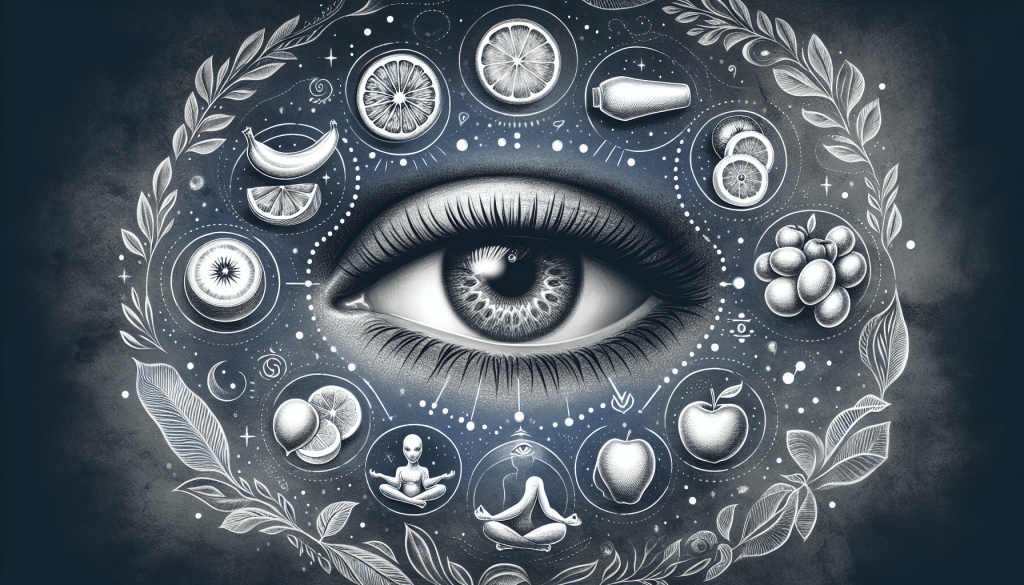
Reducing Eye Strain
Eye strain can occur due to extended periods of reading, computer use, or focusing on close-up tasks. Here are some strategies to reduce eye strain:
Taking Regular Breaks
Taking regular breaks from visually demanding activities, such as staring at a computer screen or reading, can help prevent eye fatigue. Follow the 20-20-20 rule – every 20 minutes, look away from your screen and focus on an object at least 20 feet away for at least 20 seconds.
Adjusting Lighting
Ensure that your environment is adequately lit to avoid eye strain. Avoid working in dimly lit areas, as this may cause you to strain your eyes or make it challenging to read. Adjust the lighting in your workspace to a comfortable level.
Improving Ergonomics
Maintaining proper ergonomics while working can reduce the risk of eye strain. Position your computer screen at eye level, ensuring that you are not straining your neck or eyes to view the screen. Use an ergonomic chair and maintain a comfortable distance from your screen.
Using the 20-20-20 Rule
In addition to taking regular breaks, incorporating the 20-20-20 rule into your routine can help reduce eye strain. Every 20 minutes, focus on an object that is at least 20 feet away for 20 seconds. This exercise helps relax the eye muscles and prevent fatigue.
Vision Correction Techniques
If you have vision problems, several corrective techniques can help improve your eyesight:
Glasses
Wearing prescription eyeglasses is a common and effective way to correct refractive errors such as myopia, hyperopia, and astigmatism. Glasses can provide clear vision and can be customized to your specific needs.
Contact Lenses
Contact lenses are another popular option for vision correction. They are worn directly on the eye’s surface and provide a more natural field of view compared to glasses. Contact lenses come in different types, including soft lenses, rigid lenses, and colored lenses.
Refractive Surgery
For those seeking a permanent solution to vision problems, refractive surgery may be an option. Procedures like LASIK (Laser-Assisted In Situ Keratomileusis) or PRK (Photorefractive Keratectomy) can reshape the cornea to correct refractive errors and reduce or eliminate the need for glasses or contact lenses.
Natural Remedies
While natural remedies may not provide a complete solution for vision problems, some herbs and supplements can be beneficial for eye health:
Bilberry
Bilberry is a fruit that contains antioxidants called anthocyanins, which may help improve night vision and enhance overall eye health. It can be consumed as a supplement or incorporated into your diet through fresh or dried berries.
Ginkgo Biloba
Ginkgo biloba is an herb commonly used in traditional medicine to enhance circulation and improve mental acuity. Some studies suggest that it may also improve blood flow to the eyes, potentially benefiting eye health. Consult with a healthcare professional before taking any herbal supplements.
Aloe Vera
Aloe vera gel has soothing properties and can help alleviate dry eyes or eye irritation. Applying a small amount of aloe vera gel around the eyes can provide temporary relief from discomfort.
Triphala
Triphala is an Ayurvedic herbal formulation consisting of three fruits: amla, haritaki, and bibhitaki. It is believed to have various health benefits, including improving eyesight. Triphala can be consumed as a supplement or made into an herbal eye wash.
Regular Eye Exams
Regular eye exams are essential for maintaining good eye health and detecting any potential problems. Eye exams can identify refractive errors, eye diseases, and underlying health conditions that may affect your vision. Here’s why regular eye exams are so important:
Importance of Eye Exams
Eye exams not only check for vision problems but also assess the overall health of your eyes. They can detect early signs of eye conditions or diseases, such as glaucoma, cataracts, macular degeneration, or diabetic retinopathy. Detecting these issues early increases the chances of successful treatment and prevents further vision loss.
Early Detection of Eye Problems
Many eye conditions may not exhibit noticeable symptoms in the early stages. Regular eye exams allow eye specialists to detect potential problems before they progress and cause irreversible damage. Early detection and intervention can help preserve your vision and prevent further deterioration.
Eye Health Supplements
In addition to maintaining a healthy diet, eye health supplements can provide an extra boost of nutrients that support optimal eye function. Here are some common supplements that may benefit eye health:
Multivitamins
Multivitamins containing essential vitamins and minerals can support overall eye health. Look for multivitamins specifically formulated for eye health, as they may contain higher levels of nutrients like vitamin A, C, E, zinc, and lutein.
Omega-3 Supplements
if you cannot consume enough omega-3 fatty acids through your diet, omega-3 supplements can be a convenient and effective option. These supplements can provide the necessary omega-3 fatty acids to support eye health and reduce the risk of certain eye conditions.
Consulting an Eye Specialist
While there are plenty of self-care techniques and remedies for maintaining good eye health, it is crucial to seek professional advice from an eye specialist. An eye specialist can provide personalized guidance based on your specific needs and conditions. Here’s why it is important to consult an eye specialist:
Seeking Professional Advice
An eye specialist has the expertise to assess and diagnose various eye conditions accurately. They can provide professional advice on managing and improving your eyesight, recommend appropriate treatment options, and monitor any changes or progress in your eye health.
Customized Treatments
Each individual’s eyesight requirements and conditions are unique. Consulting an eye specialist ensures that you receive customized treatments tailored to your specific needs. Whether it is prescribing the right prescription glasses, contact lenses, or recommending the most suitable vision correction surgery, an eye specialist can offer personalized solutions.
In conclusion, while eyesight improvement may not always be possible, adopting healthy habits, performing eye exercises, practicing proper nutrition, protecting your eyes with eyewear, reducing eye strain, and seeking professional advice are all essential steps towards maintaining good eye health. Remember to prioritize regular eye exams and care for your eyes, as healthy eyesight plays a crucial role in your overall wellbeing.
An Additional Resource

Within only a couple of weeks of trying this vision restoring secret, every participant saw their dream of a 20/20 sight come true.
No matter the disease they suffered from. And no matter how bad their vision had gotten.
Shortly after, they could even spot even the most unnoticeable details. It’s the answer to solving literally allvision problems including cataracts, glaucoma, blurred vision, myopia and so many more.
All details are in this short video presentation: https://bit.ly/VisiSharp-Eyesight-Recovery

